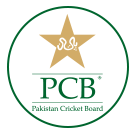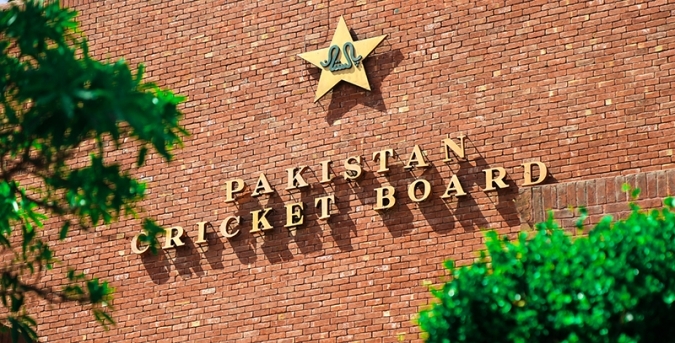The PCB has issued the following clarification to Dawn to its 6 December 2019 article under the caption PCB spent lavishly on top 5 officials but peanuts on cricket development, which is available here. This is a follow-up story under the caption PCB decides to make additional two-month payment to curators and is available here.
i) The PCB does not receive any development funds from the ICC as it is a Full Member. The ICC provides development funds to emerging, developing and Associate Members. The ICC, in 2014, had approved a revenue sharing model. Under the agreed formula, the PCB, like any other Test playing country, receives its share on an half-yearly basis, which, in turn, it spends on administrative, infrastructure, and cricket-related activities, initiatives and projects – both at the men’s, women’s, pathways and grassroots level through the National Cricket Academy and domestic cricket programmes (details below).
ii) The ICC distributes revenue share to its Members following the submission of audited accounts, which, in the PCB’s case, are approved by the Board of Governors
iii) Apart from the ICC revenue share, the PCB generates its own funds through various commercial programmes and PCB’s officials contribute significantly to this revenue generation through their commitment, hard work, and their unique expertise and skills. These revenues are strategically and methodically spent on administrative, infrastructure, and cricket-related activities, initiatives and projects – at the men’s, women’s, pathways and grassroots levels through the National Cricket Academy and domestic cricket programmes (details below)
iv) 14(2) of the PCB Constitution 2014, which was superseded by the PCB Constitution 2019 on 19 August 2019, says: “The Regional Cricket Associations shall be responsible to promote, develop, regulate and maintain general control of cricket in their respective Regions”.
v) Unfortunately, and as explained in the 3 December 2019 PCB media release, which is available here, the regional cricket associations were failing to fulfil their constitutional obligations of promoting, developing, regulating and maintaining general control of cricket in their respective regions in accordance with their obligations and duties. Consequently, to protect the game, the PCB was forced to provide them complete financial assistance so that they could continue to perform and function at district / zonal and City Cricket Association levels in terms of equipment, repairs and administrative expenses. Following a recent critical review of the use of the funds provided by PCB, which indicated governance failure and lack of, this funding has been stopped.
vi) 14(4) of the PCB Constitution 2014, which was superseded by the PCB Constitution 2019 on 19 August 2019, further says: “The Regional Cricket Associations may receive funds from the Board and also generate funds though their own efforts, for their utilization and for onward transmission to the District / Zonal and City Cricket Associations. The Regional Cricket Associations shall ensure proper and transparent application of the funds and shall provide audited accounts thereof to the Board otherwise the future grant for the said Region may be withheld”.
vii) There is no record available with the PCB of the Regional Cricket Associations generating their own funds as they have been unable to and have, in the majority of cases, been unwilling to submit their audited accounts. In doing so, they were in breach of 14(4) of the Constitution. Once again, the PCB, to ensure cricket activities were not disrupted in the regions, provided a funding of over PKR 317million to the 16 regions in the past five years to manage 63 grounds in terms of equipment, repairs and administrative expenses.
viii) If the PCB had not made the investment of PKR317million over five years, cricket and the cricketers would have been directly affected, which, in turn, would have had a massive impact on Pakistan’s global standing as a proud cricket nation. Furthermore, the PCB also provided funds to 16 regions (18 regional teams) in terms of regional teams’ logistics, traveling, accommodations, players match fees, players monthly retainership, allowances, grants for inter-district matches and club cricket tournament, without any contribution from the regional set-ups and allocate funds as stated below.
ix) The Pakistan Cricket Board has spent a large amount of money on cricket development and domestic programmes. The following is the breakdown of past three budgets allocations for cricket development and activities at various levels (all amounts in PKR):
|
Financial Year |
NCA budget |
Domestic cricket budget |
RCA grant |
Total |
|
2016-2017 |
251,228,900 |
839,307,286 |
106,333,542 |
1,196,869,728 |
|
2017-2018 |
239,036,893 |
788,282,631 |
96,910,567 |
1,124,230,091 |
|
2018-2019 |
258,725,870 |
995,003,018 |
101,469,414 |
1,355,198,302 |
|
TOTAL |
748,991,663 |
2,622,592,935 |
304,713,523 |
3,676,298,121 |
Under the new domestic cricket structure, the investment the PCB is making in the game will be significantly higher than the above figures.
x) As regards salaries and perks of the five senior PCB officials, the figures are inaccurate and misleading. Furthermore, their salaries and perks are in line with their global experience/exposure/skills/stature and duly approved by the Board of Governors.
xi) Below are the brief profiles of the five PCB officials mentioned in the news report:
- Wasim Khan, an MBE, joined the PCB in February 2019 following a recruitment process. He was a former Chief Executive of the Leicestershire County Cricket Club and was tipped for a senior role at the England and Wales Cricket Board. He is an experienced administrator with a Masters degree from the world-renowned Warwick Business School. He is a former first-class cricketer with Warwickshire, Sussex and Derby. Furthermore, in 2006, his autobiography ‘Brim Full of Passion’ won the Wisden Book of the Year.
- Misbah-ul-Haq represented Pakistan in 276 international matches across all formats, scoring a total of 11,132 runs from 2001-2017. He also captained Pakistan in 56 Tests, 87 ODIs and eight T20Is. He was appointed chief selector and head coach in September 2019 following a recruitment process
- Waqar Younis, an ICC Cricket Hall of Famer and two-time former head coach, played in 349 internationals for Pakistan in which he took 789 wickets. He was appointed in September 2019 following a recruitment process. Last month, he was recently inducted into the Bradman Hall of Fame at the Bradman Gala Dinner for his outstanding record.
- Badar Manzoor has been the PCB’s Chief Financial Officer since July 2011. He is an experienced chartered accountant, possessing over 25 years of post-qualification experience with a proven track-record.
- Sami-Ul-Hasan is a cricket communications expert with over 31 years of experience. He also served Dawn newspaper for 14 years, while his last appointment was as Head of Media and Communications with the International Cricket Council in Dubai. He was appointed in March 2019 following a recruitment process.
xii) Mr Ehsan Mani was elected as Chairman of the PCB on 4 September 2018 and, therefore, it will be inappropriate for him to comment on the cricket policies and strategies of his predecessors, which, according to the statement ‘cost cricket development’ and ‘declining cricket standard in Pakistan’




